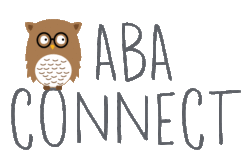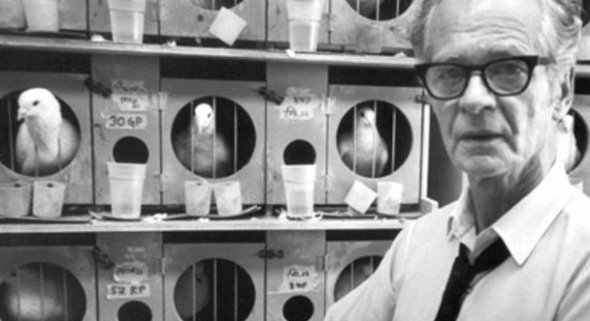B. F. Skinner
The experimental branch of behavior analysis began in 1938 with the publication of B. F. Skinner’s book, The Behavior of Organisms.
Skinner used operant conditioning, which uses the consequences of behavior to shape future behavior. Operant behaviors are not elicited by preceding stimuli but instead are influenced by stimulus changes that have followed the behavior in the past. In his work with pigeons in 1963, he taught them to either turn around or peck a plate in a cage in order to receive food. In this case, he used their behavior based on the visual cue caused a treat to be produced which reinforced the given behavior when the cue was presented again in the future.
Skinner’s most important contribution to the understanding of behavior is the notion of the operant three term contingency. This was the first time that the consequences of behavior was used in the study of overall behavior.
Skinner also incorporated private events into the system of behavior, creating radical behaviorism in 1945. This branch of behaviorism includes private and internal events as being under covert stimulus control. Skinner suggested that thoughts were behavior and logically supposed that they were under the same control contingencies that observable behavior was.
Books by Skinner:
About Behaviorism
Verbal Behavior




Leave a Reply
Want to join the discussion?Feel free to contribute!